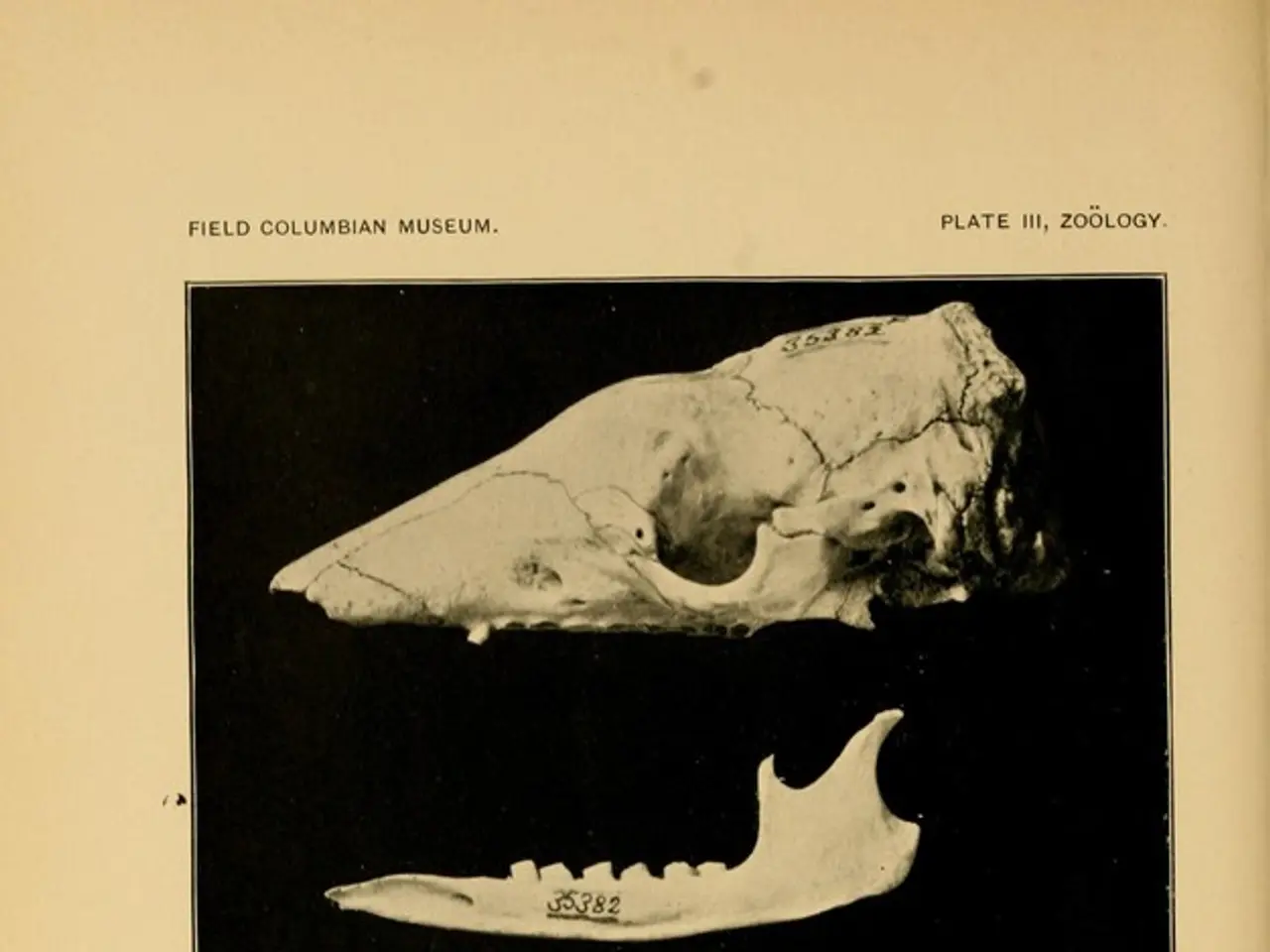Synovial sac cysts: Signs, origins, and remedies
Synovial cysts, also known as juxtafacet cysts, are fluid-filled sacs that can develop on the facet joints of the lower spine. These cysts can cause discomfort and pain, but treatment options are available to alleviate symptoms and address the underlying cause.
Treatment for synovial cysts typically begins with conservative measures. This may involve taking pain medication such as Non-Steroidal Anti-Inflammatory Drugs (NSAIDs), seeking physical therapy, and resting. In some cases, a doctor may recommend over-the-counter or prescription medications to help reduce pain and inflammation.
For more severe symptoms, a doctor may consider surgical intervention. The aim of surgery is to remove the cyst and reduce pressure on the spinal cord and surrounding nerves. There are several surgical options available, including procedures that stabilize the facet joint or remove the cyst directly.
Steroid injections can also help relieve pain and pressure from synovial cysts. However, these injections can cause serious side effects and should be used with caution.
Diagnosing a synovial cyst usually begins with an ultrasound, although other imaging tests such as an MRI scan, CT scan, or X-ray may be recommended. It's important to consult a healthcare professional for a comprehensive diagnosis and treatment plan tailored to the specific condition.
Synovial cysts are benign and can develop without causing any symptoms. However, people with symptoms such as recurrent lower back pain, sciatica, or difficulty walking or standing, should see a doctor. In many cases, synovial cysts that do not cause symptoms do not require treatment.
It's worth noting that synovial cysts are different from ganglion cysts, which do not contain a lining of synovium cells. Ganglion cysts can develop around joints and tendons in any part of the body, particularly the hand and wrist.
Physical or occupational therapy may also be an option for some people with synovial cyst symptoms. The synovium, a thin membrane that lines the inner surfaces of joints, produces synovial fluid which can build up to form a synovial cyst.
Synovial cysts are most common in older adults and people with joint conditions such as arthritis. While the exact cause of synovial cysts is not fully understood, it's important to seek medical attention if you experience any symptoms associated with these cysts. By working with a healthcare professional, you can develop a treatment plan that addresses your specific needs and helps alleviate your discomfort.
- Synovial cysts, a common issue in older adults, can coexist with joint conditions like arthritis.
- Different from ganglion cysts, synovial cysts contain a lining of synovium cells and usually form around the facet joints of the lower spine.
- For a comprehensive diagnosis, imaging tests such as ultrasounds, MRI scans, CT scans, or X-rays may be recommended to identify synovial cysts.
- Consulting a healthcare professional is crucial for a personalized treatment plan if you experience symptoms like recurrent lower back pain, sciatica, or difficulty walking or standing.
- While some synovial cysts might not require treatment if they don't cause symptoms, seeking medical advice is essential to ensure proper care.
- Surgical interventions may be considered for more severe symptoms, with the aim of removing the cyst and alleviating pressure on the spinal cord and surrounding nerves.
- Treatment initially focuses on conservative measures such as taking pain medication, seeking physical therapy, resting, or using over-the-counter or prescription medications.
- Steroid injections can help relieve pain and pressure from synovial cysts in certain cases, but should be used carefully due to potential serious side effects.
- Chronic diseases such as psoriatic sclerosis, multiple sclerosis, bipolar, type 1 or type 2 diabetes, obesity, depression, asthma, ankylosing spondylitis, dry macular degeneration, and various other medical-conditions could contribute to the development or worsening of symptoms associated with synovial cysts.
- Maintaining overall health and wellness through regular exercise, a balanced diet, and stress management is essential in managing chronic diseases and preventing the development or progression of chronic-diseases like synovial cysts.




